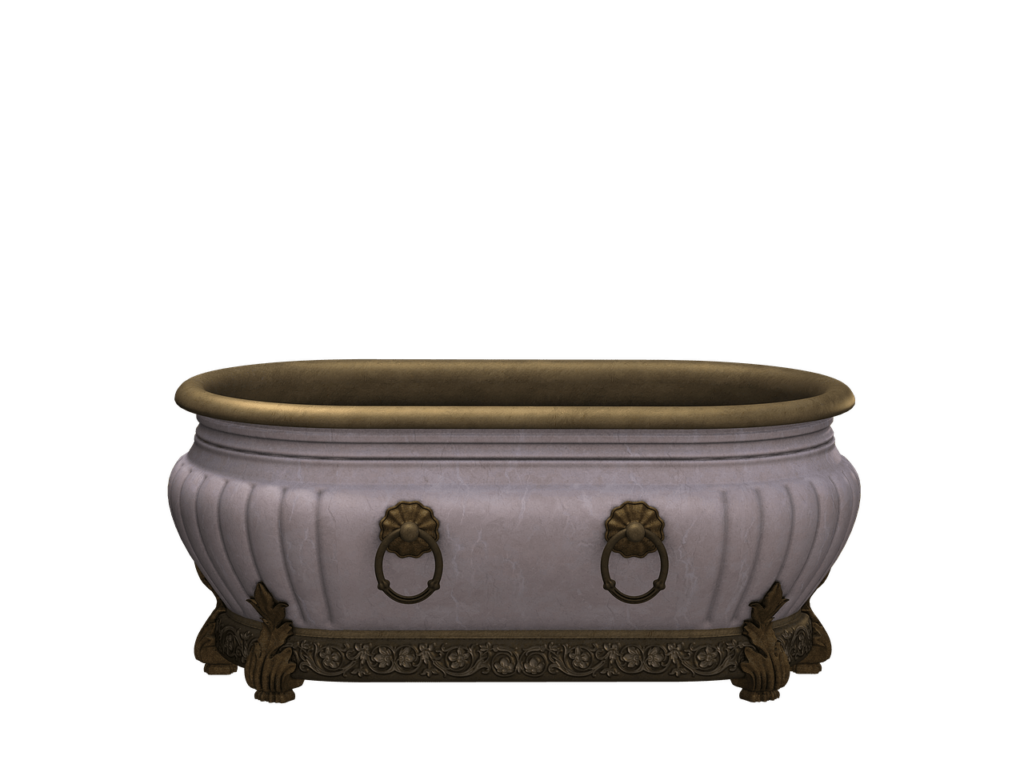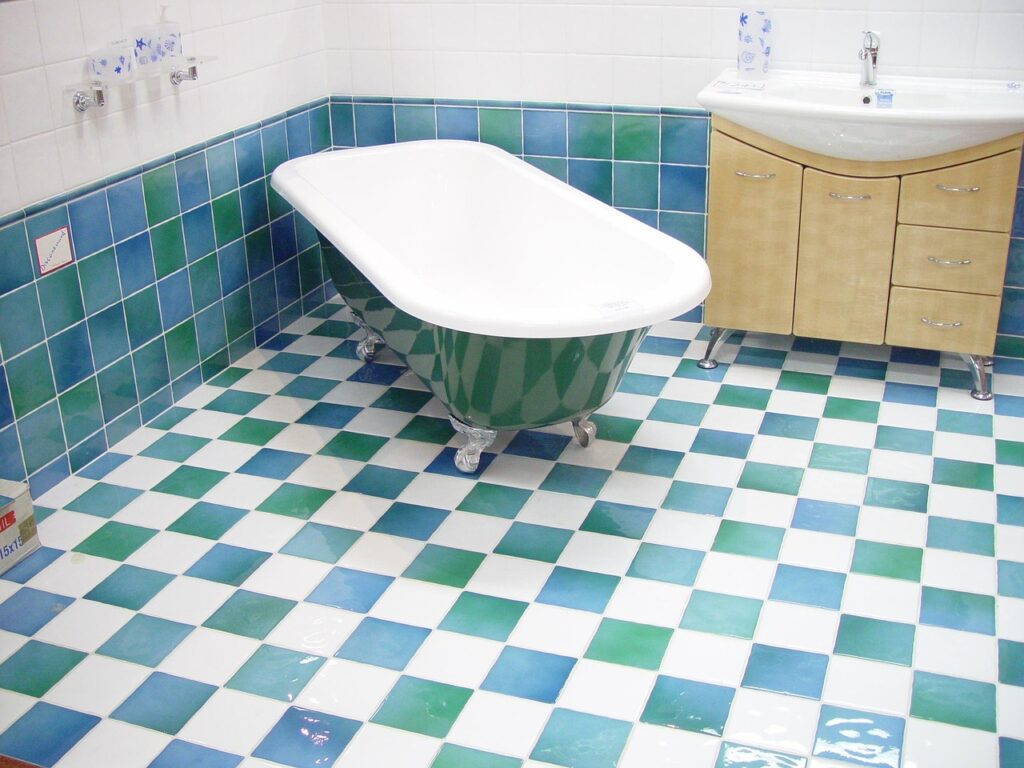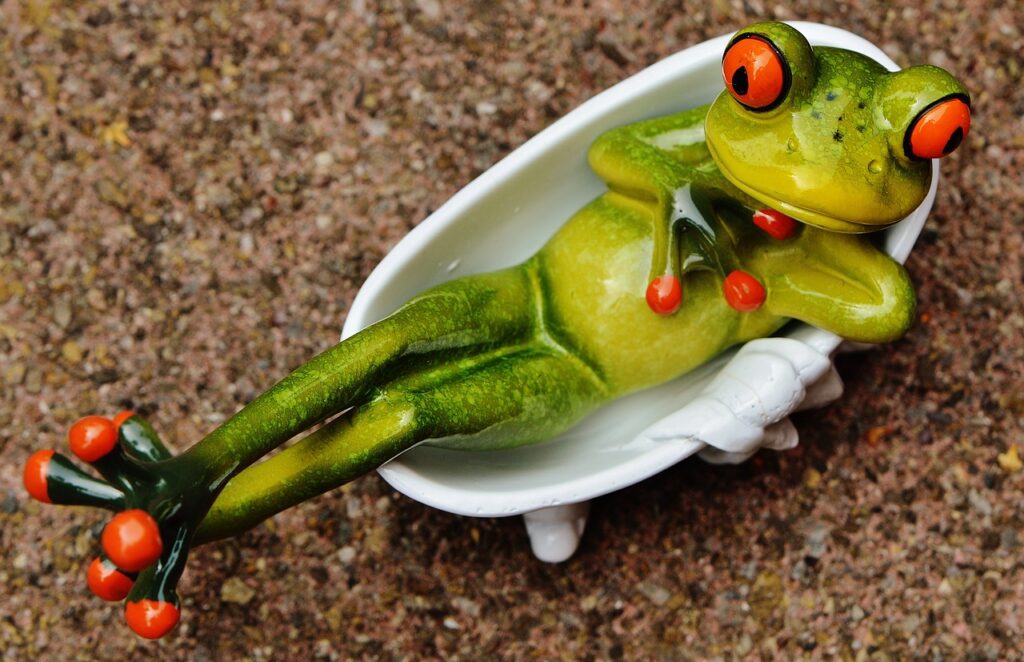You’re probably excited about giving your old bathtub a complete makeover. You have come to the right place! Based in the lovely city of Houston, our company offers top-notch tub resurfacing services. What sets us apart is our paint specifically designed for tub resurfacing. Not only will it bring your tub back to life, but it will also leave it looking glossy and new. Let’s explore how your dingy tub can be transformed into a delightful centerpiece in your bathroom.

Understanding Tub Resurfacing
Defining the concept of tub resurfacing
Tub resurfacing, also referred to as tub reglazing or refinishing, is a method of refreshing the surface of a worn-out, damaged, or discolored bathtub. Here, you’re essentially coating the tub with a fresh layer of paint to restore its vibrant new look. It’s a practical, affordable, and sustainable way of improving your bathroom’s aesthetic without having to replace the whole bathtub.
The importance of tub resurfacing
Tub resurfacing is a cost-effective solution to unsightly bathtubs. Beyond improving the aesthetic value of your bathroom, tub resurfacing can extend the life of your tub by several years. It’s also a straightforward process, requiring less time and resources compared to full tub replacement. By investing in tub resurfacing, you can swiftly enhance the functionality, safety, and overall appeal of your bathroom while increasing the value of your home.
Common problems that warrant tub resurfacing
Bathtubs usually require resurfacing due to normal wear and tear. This includes accumulated stains, discoloration, surface dents, scratches, and chipping, often resulting from prolonged usage, harsh cleaning chemicals, or physical impact. Moreover, an outdated color or finish can also warrant a resurfacing job, especially if you aim to maintain a contemporary bathroom style.
The Role of Paint in Tub Resurfacing
Significance of quality paint in resurfacing
Quality paint is crucial for a succesful tub resurfacing job. The right paint can cover up minor imperfections, protect the tub from further damage, and give it a fresh, new look. It also prevents water from seeping into the tub material, reducing risks of rust, corrosion, and mold growth. Hence, the quality of paint used can significantly influence the longevity and appearance of your resurfaced tub.
The relationship between paint and the durability of the tub
Quality paint has a direct effect on tub durability. Using top-grade paint provides a robust, long-lasting coating that can withstand frequent usage, harsh cleaning chemicals, and moisture-induced damage, thereby prolonging the life span of your bathtub. A well-applied layer of paint can form a protective shield that helps maintain the tub’s integrity over time.
How different paints affect the aesthetic of a resurfaced tub
Aside from the protective aspect, the paint imparts a specific color and finish to your tub, influencing its overall appeal. Depending on your preference, you can choose from glossy, semi-glossy, or matte finishes, each contributing a distinct touch to your bath. The type and color of paint used can seamlessly blend with your bathroom’s decor or even become the standout element in the space.
Types of Paint for Tub Resurfacing
Water-based paints
Water-based paints, also known as latex paints, are a popular choice for tub resurfacing due to their fast-drying nature and ease of application. They’re also eco-friendly and emit fewer harmful fumes, making them safer for indoor use.
Oil-based paints
Oil-based paints are known for their durability and resistance to moisture and chipping. Despite their strong odor and longer drying time, they provide a high-gloss, elegant finish that can enhance the look of your bathroom.
Latex paints
Latex paint, a type of water-based paint, is often favored for its versatility and durability. It’s resistant to mildew and moisture, quick-drying, and produces less odor. However, it’s advisable to apply multiple coats for a more durable finish.
Acrylic paints
Acrylic paints are renowned for their color retention, excellent coverage, and resistance to chipping and cracking. They also provide a high-quality, glossy finish, ideal for creating a polished look in your bathroom.
Describing the features and benefits of each type of paint
Each type of paint has distinct features that suit specific needs. While water-based paints are known for their quick-drying properties and eco-friendliness, oil-based paints offer superior durability and a lustrous finish. On the other hand, latex paints provide a balance of durability, mildew resistance, and easy application. Acrylic paints stand out for their superior color-retention, coverage, and glossy finish. The right choice of paint can ensure a satisfactory resurfacing job and enable a smoother maintenance routine.
Choosing the Right Paint for Tub Resurfacing
Factors to consider when selecting paint
Several factors come into play when choosing paint for tub resurfacing. You need to consider the tub material, the durability of the paint, the color, and the finish. Additionally, think about the level of maintenance required, the drying time, and the odor produced by the paint.
How to match paint to tub material
The selection of paint should align with the tub material to ensure optimal adhesion and durability. For instance, acrylic and fiberglass tubs pair well with acrylic or epoxy paint. On the other hand, oil-based paints work best with cast iron and steel tubs. Considering the tub material can help you achieve superb results and prolong the longevity of your tub.
The importance of considering the bathroom’s overall color scheme
While functionality is paramount, aesthetic considerations should not be overlooked. The paint color needs to harmonize with your bathroom decor to create a cohesive look. If the rest of your bathroom uses cooler shades, a bathtub in a similar or complementing color can preserve the relaxing atmosphere. Alternatively, a bold color can immediately upgrade the bathroom’s design and make the tub the centerpiece.

Preparation Process for Tub Resurfacing
Importance of thorough cleaning
Before commencing the resurfacing process, a thorough cleaning of the tub is imperative. This helps to remove any soap scum, mineral deposits, or other residues that could inhibit proper adhesion of the paint, therefore ensuring a smoother and more durable finish.
The role of sanding in the preparation process
Sanding is another critical step in tub resurfacing preparation. Sanding the tub surface helps to create a roughened surface for better adhesion of the paint. It also helps to remove any superficial damage, like scratches or dings, leading to a smoother surface for the paint application.
Proper paint application techniques
When it comes to painting, technique matters. Start with a thin, even layer, and let it dry completely before applying the next. This allows for proper adhesion and minimizes the risk of drips or streaking, ensuring a smooth, attractive finish. Remember to always follow the paint manufacturers’ guidelines for best results.
Safety Measures when Handling Paint
The importance of working in a well-ventilated area
Working in a well-ventilated area is essential when dealing with paint to avoid inhaling potentially harmful fumes. Opening windows or turning on a fan can improve air circulation during the painting process, making your work environment safer.
Using gloves and safety goggles
Paint can cause skin irritation or harm your eyes. It’s best to use gloves and safety goggles to protect your skin and eyes from accidental paint splashes or contact.
Properly disposing of paint cans
Once you’ve completed the resurfacing project, you should dispose of empty paint cans correctly. Check with your local waste disposal facility for instructions, as regulations for paint disposal may vary.

The Process of Tub Resurfacing
Step-by-step guide on how to resurface a tub
Resurfacing a tub involves several steps. First, you clean and sand the tub’s surface, then apply a layer of primer. After it dries, you apply the paint – usually multiple layers – allowing each layer to dry before adding the next. The final step is to apply a topcoat for protection and added durability. Following this process plays a critical role in the final outcome of the resurfacing job.
Tips for ensuring a smooth, long-lasting finish
For a smooth, long-lasting finish, ensure that the tub surface is thoroughly cleaned and sanded before applying paint. Use high-quality paint and apply it in thin, even layers, making sure each layer dries before adding the next one. Finally, apply a topcoat to protect the paint and prolong its lifespan.
Common mistakes to avoid during the resurfacing process
Common mistakes during the resurfacing process include skipping the cleaning and sanding stages, applying paint too thickly, and neglecting to apply a topcoat. Another common mistake is rushing the process and not allowing each layer of paint to dry fully before applying the next one. Avoid these mistakes for a successful resurfacing experience.
Maintenance of a Resurfaced Tub
Routine cleaning practices
Maintaining a resurfaced tub involves regular cleaning to keep it looking fresh and new. Gentle, non-abrasive cleaners are best to remove dirt and grime without scratching the surface. Remember to rinse thoroughly after cleaning to keep the surface smooth and glossy.
Products to avoid when cleaning a resurfaced tub
Abrasive cleaners, harsh chemicals, and scrubbing tools can damage the painted surface of a resurfaced tub. Using mild, nonabrasive cleaners and soft cleaning tools can help preserve the finish and ensure the longevity of the tub.
When to consider a new resurfacing
If your tub’s surface begins to chip, crack, or peel, or stains are no longer removable, it might be time for a new resurfacing. In some cases, touch-ups might suffice, but if the damage is extensive, a complete resurfacing may be necessary.
Cost Implications of Tub Resurfacing
The expense of tub resurfacing
The cost of resurfacing a tub depends on the size and condition of the bathtub, the type of paint used, and whether the project is a DIY or completed by professionals. While tub resurfacing is generally more cost-effective than replacing the tub, prices can vary.
Cost comparison between DIY and professional resurfacing
Though DIY resurfacing might seem cheaper upfront, it may end up costing more if errors occur or if the finish doesn’t last as long due to improper preparation or application. Professional resurfacing, on the other hand, comes at a higher upfront cost but offers the advantage of professional expertise, quality materials, and potentially longer-lasting results.
Ways to save cost when resurfacing a tub
To save cost, you might consider doing some tasks like cleaning and sanding yourself. Additionally, you can compare prices from various paint suppliers to get the best value for money. Remember, though, that sacrificing quality for cost savings may result in a substandard finish that doesn’t last, which could end up costing more in the long run.
Our Tub Resurfacing Services in Houston
Overview of our tub resurfacing services
Our company offers top-notch tub resurfacing services in the Houston area. We are experts in every aspect of the job, from preparation to final coat application. Our team uses high-quality, eco-friendly paints to give your tub a fresh, lasting, and aesthetically pleasing finish.
Why choose our company for your tub resurfacing needs
We bring years of expertise to cater to your tub resurfacing needs. Our team is diligent, detail-oriented, and committed to providing excellent customer service. We prioritize customer satisfaction, ensuring that we provide outstanding results on every job. Moreover, we offer our services at competitive prices, giving you top-value for your money.
Customer testimonials about our services
Our customers vouch for our high quality and reliable services. Many of our clients commend us for our professionalism, punctuality, and expertise in tub resurfacing. Their glowing testimonials are not just proof of our competency but also reflect our commitment to providing superior customer service. With us, you can rest assured that your tub resurfacing project is in capable hands.
